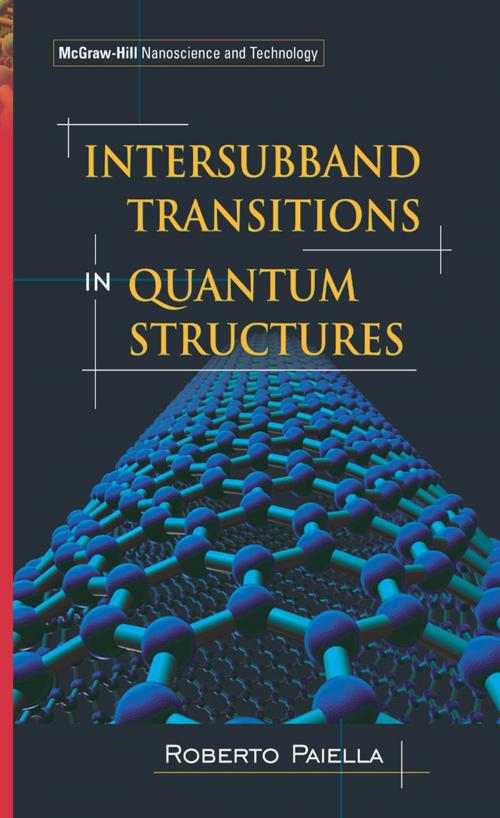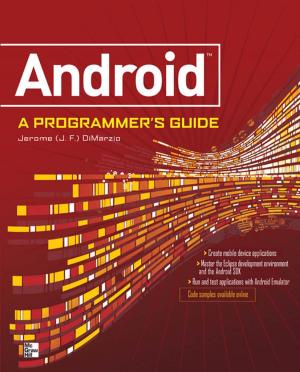Intersubband Transitions In Quantum Structures
Nonfiction, Science & Nature, Technology, Engineering, Mechanical, Civil| Author: | Roberto Paiella | ISBN: | 9780071492072 |
| Publisher: | McGraw-Hill Education | Publication: | May 5, 2010 |
| Imprint: | McGraw-Hill Education | Language: | English |
| Author: | Roberto Paiella |
| ISBN: | 9780071492072 |
| Publisher: | McGraw-Hill Education |
| Publication: | May 5, 2010 |
| Imprint: | McGraw-Hill Education |
| Language: | English |
Advances in epitaxial growth and nanofabrication technology in the past several years have made it possible to engineer sophisticated semiconductor quantum devices with unprecedented control of their electronic and optical properties. A particularly important class of such devices is based on intersubband transitions, i.e. optical transitions between quantized electronic states in semiconductor heterostructures. Most notably, mid-infrared quantum-well infrared photodetectors (QWIPs) and quantum cascade lasers nowadays offer superior performance for applications such as thermal imaging, spectroscopy, and biochemical sensing, and have recently become commercially available. Intersubband devices also have the potential for a revolutionary impact in the fields of silicon photonics, terahertz sensing, and ultra-high-bandwidth fiber-optic communications, and extensive research is ongoing to fulfill this promise. Joined by an international group of world experts, Paiella describes the basic device physics and applications of intersubband transitions, as well as the more recent and important developments in this exciting area of semiconductor nanotechnology.
Advances in epitaxial growth and nanofabrication technology in the past several years have made it possible to engineer sophisticated semiconductor quantum devices with unprecedented control of their electronic and optical properties. A particularly important class of such devices is based on intersubband transitions, i.e. optical transitions between quantized electronic states in semiconductor heterostructures. Most notably, mid-infrared quantum-well infrared photodetectors (QWIPs) and quantum cascade lasers nowadays offer superior performance for applications such as thermal imaging, spectroscopy, and biochemical sensing, and have recently become commercially available. Intersubband devices also have the potential for a revolutionary impact in the fields of silicon photonics, terahertz sensing, and ultra-high-bandwidth fiber-optic communications, and extensive research is ongoing to fulfill this promise. Joined by an international group of world experts, Paiella describes the basic device physics and applications of intersubband transitions, as well as the more recent and important developments in this exciting area of semiconductor nanotechnology.















